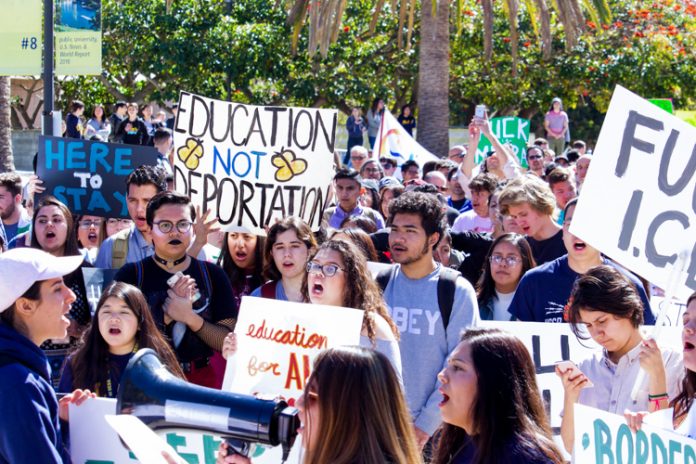Arturo Samaniego
National Beat Reporter
The Deferred Action for Childhood Arrivals (DACA) has undergone a new change in status with a ruling from a federal judge that requires the government to begin accepting new applications.
The ruling was handed down by Judge John Bates of the U.S. District Court for the District of Colombia and overruled the Trump administration’s attempt to end DACA. Like other federal judges who have ruled against the Trump administration when it comes to DACA, Bates and his ruling argued that the Department of Justice acted in an arbitrary and capricious manner when deciding to end the program.
Bates’s ruling differs from other federal judges’ rulings against ending DACA in that it not only requires the government to renew applications from current DACA recipients, but also requires that the government accept new applications from individuals not previously enrolled in the program.
This ruling will go into effect after a 90-day delay, giving the Trump administration time to make a new case for ending the program.
“I think it’s a good start and a relief for a lot of DACA recipients who worried about losing their benefits, but in the long term it does not change worry from DACA recipients that their benefits may be taken away,” said Alan Soto, a third year political science major and DACA recipient.
Staff who work with undocumented students on campus agree.
“Any policy changes that helps students continue their education are good,” Diana Valdivia, Undocumented Student Services Coordinator, told The Bottom Line.
According to the Pew Research Center, there are about 700,000 DACA recipients as of September 2017.
In response to the federal court ruling, the University of California issued a statement in which they expressed pleasure with Bates’s and other federal judges’ rulings that found the rescission of DACA to be “arbitrary and capricious.”
“These students, and all DACA recipients, must be allowed to continue to legally live, work, learn, and contribute to this country as the Americans they are. In addition to our efforts in the courts, we continue to urge Congress to pass a law that will provide permanent statutory protection for DACA,” the UC said in their statement.
Valdivia notes that with any policy changes in regards to DACA reactions from recipients vary. Students might reevaluate their future plans and what opportunities are available to them whether the changes are good or bad.
“In this case it looks like a positive change, so folks will be happy,” Valdivia said.
The future of DACA has been pushed into further uncertainty with a recent lawsuit filed against the Trump administration by seven states, led by Texas, which seeks to end the program. The suit asks for a preliminary injunction preventing the administration from enforcing DACA.
“There is still worry over the fact that it can be eliminated; the current climate that we have is anti-immigrant so again there is worry among people that anything can happen,” Soto said. “There is a lot of support for immigrants and DACA in California, [and] politicians here are continually pushing to maintain and protect DACA.”
Soto said that DACA’s continually shifting status has not been entirely detrimental on the moral of undocumented community and has in fact drawn some positivity.
“A lot of people have become more proud of where they come from, they have become more politically active, more active in their community, and there has been a growth in unity among people,” Soto said.











